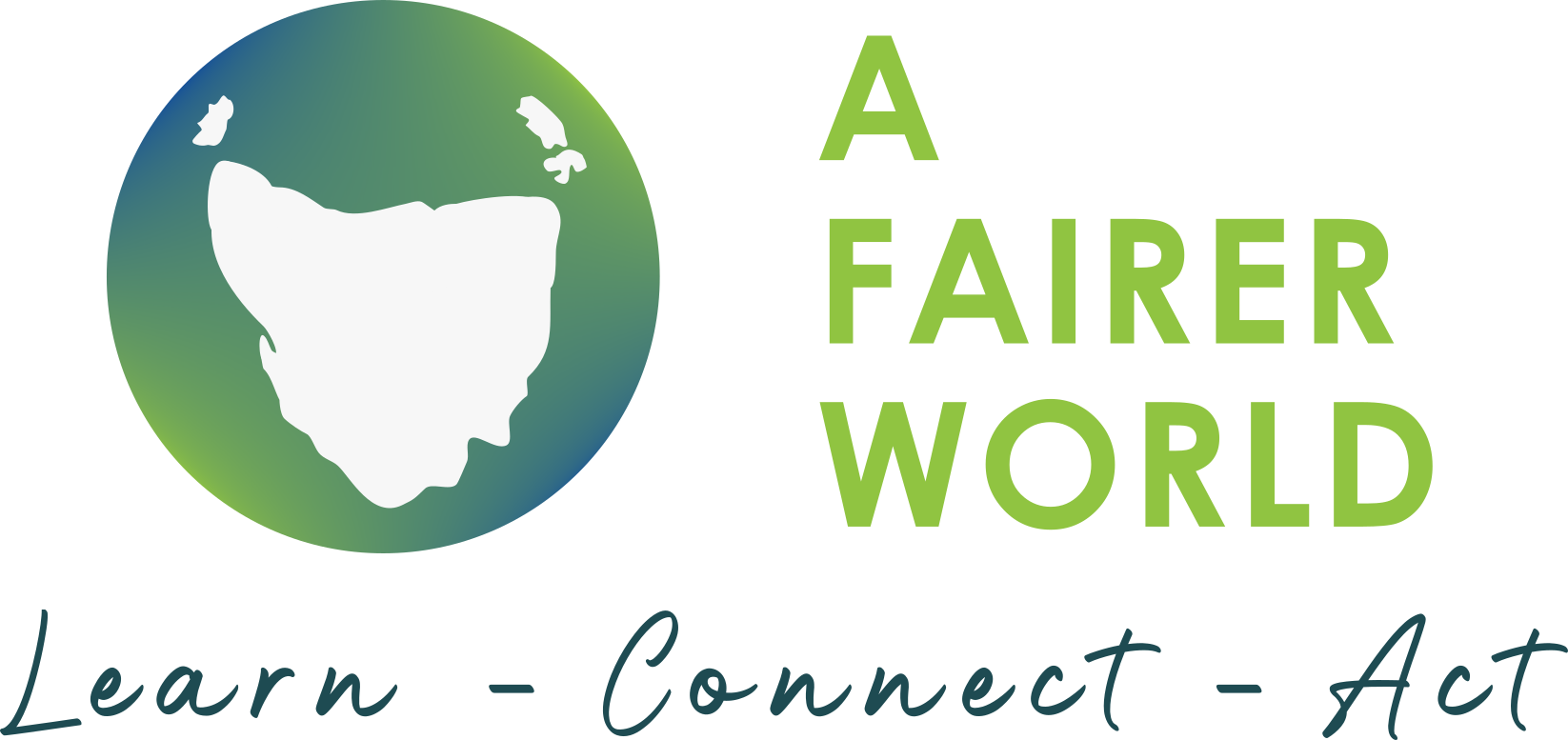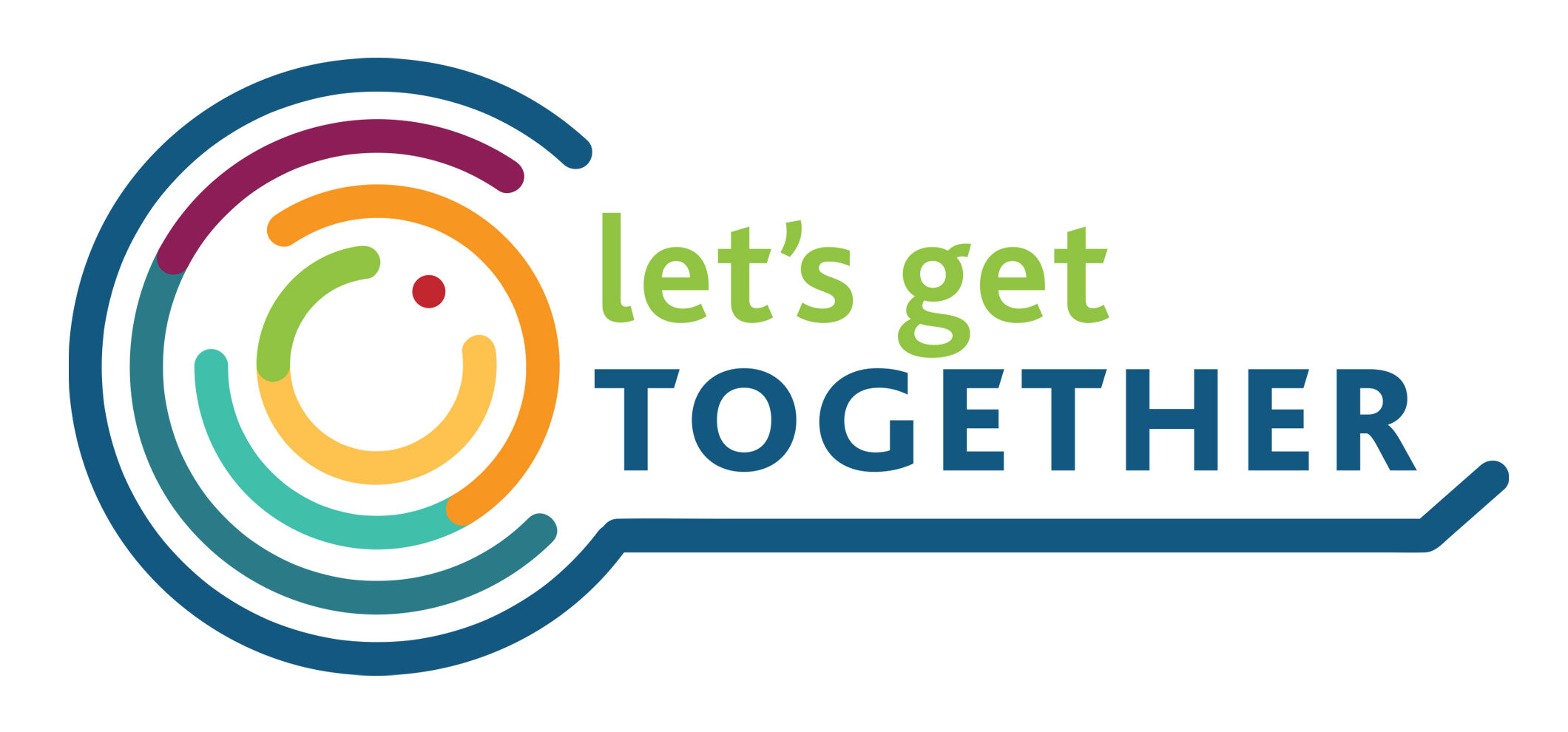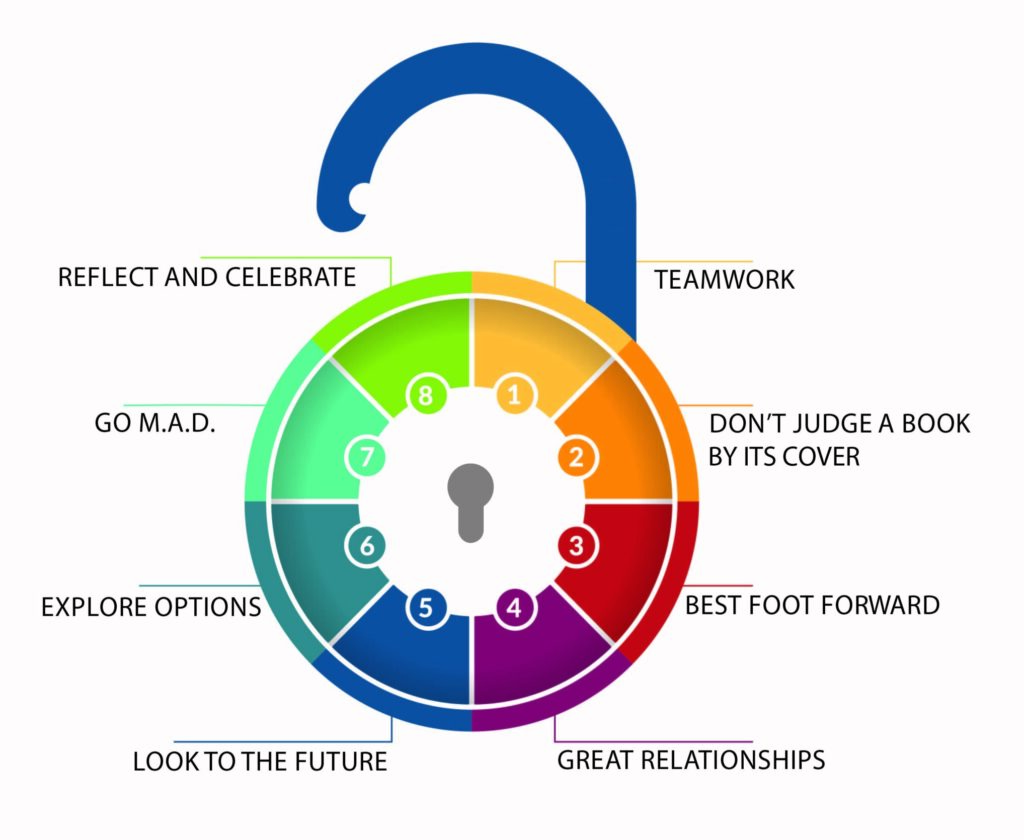Creating respectful schools
Starting your Respect and Wellbeing Journey
In 2023 we are encouraging schools to take the first step on their Respect and Wellbeing Journey by allowing their students to experience an Inclusion Forum delivered by our Hobart Human Library.
This year, schools receive a 90% subsidy on the cost of forums from the Department for Education, Children and Young People.
Download the Inclusion Forum brochure or contact us to find out more.
The forum uses the art of storytelling to break down barriers and build empathy. It provides an opportunity for students to hear the personal experiences of exclusion from 2 to 4 human ‘books’ and ask questions in a Q & A that we call “You Can Ask That!”
All of the human ‘books’ are Tasmanians who have experienced stereotyping, prejudice or discrimination – perhaps because of their culture, gender, sexual orientation, disability, appearance or mental health status. In sharing their personal experiences, human ‘books’ hope to educate others about the impact of being excluded and start conversations about how we can all contribute to positive change.
“I think the forum was very educational and makes us realise just how the smallest actions could have such an influence on someone (good or bad).” Year 10 student, Campania District School
Let’s Get Together program
Let’s Get Together is a diversity education program developed by A Fairer World for Tasmanian schools. It is designed for schools wanting to partner with their students and the wider community to create a more respectful school environment.
The program is delivered online at the Let’s Get Together website
The program addresses discrimination by building ‘diversity competence’ – the knowledge, skills and values that foster empathy and a desire to create positive change.
Changing behaviours for a respectful school community does not happen overnight. What‘s different about Let’s Get Together is that teachers are supported on the journey by skilled local educators and connected to local support agencies. The program is written specifically for Tasmanian schools and the support is available locally.
The heart of the program is the 8 Keys to Harmony, an eight-step learning process for students to explore the underlying causes of bullying and other discriminatory behaviours and to create tangible outcomes for themselves and the school that improve the school environment.
Let’s Get Together is strengths-based, asking students what they, and others around them, can bring to creating a school environment where everyone feels safe and included. By using their own resources, they can experience the transformative power of making a difference.
Impact and reach
Research shows that there is a strong connection between school climate, student wellbeing and academic outcomes[1]. When students feel unsafe, marginalised or not included at school, they are less likely to attend, more likely to display disruptive behaviours, and their educational attainment is lowered.
Let’s Get Together aims to improve school climate and student wellbeing. Since its inception in 2014, it has reached over 3000 students from years 5-9, in 13 schools across Southern Tasmania.
Independent program evaluator, Dr Sarah Stewart, says,
“It’s been impressive seeing and hearing so many students across so many schools making positive changes to school culture, speaking up about discrimination accessing and acting on their student voice”.
The case of Cosgrove High School
“When we were in Grade 7 this school was pretty violent…these days, well I can’t remember the last time there was a fight!”
Cosgrove High School student, 2021
An example of the program’s impact is Cosgrove High School, where Let’s Get Together has been running for five years and has made a significant contribution to the school’s improvement. Findings from the 2021 Evaluation Report, conducted by independent evaluator Dr Sarah Stewart, suggest that the program
“has become successfully embedded at CHS, with this year’s program being regarded as possibly more successful than in previous years”.
Indicators or impact include the following:
- Almost 75% of students were able to clearly articulate their understanding of the program’s key messages
- 95% of students reported that either they “already treated others with respect” or would now “treat others with more respect”
- Almost 100% of students engaged well with community service providers at their Diversity Expo, with “many students keen to keep having conversations after the bell had rung”
- Approximately 90% of students presented final projects that reflected the core concerns of the LGT program
- 86% of students said they would like to build on the program in some way to continue to make their school a more inclusive place.
“The Let’s Get Together program has been an important contributor to our school’s improvement over the past few years. Across various indicators our students outperform the State averages, and this program has contributed to above average maintenance of student engagement across years 7-8. The Let’s Get Together program is a fantastic program to support schools to harness student voice and agency, a key component of a connected, aspirational and respectful community of learners.!”
David Bryant, Cosgrove High School Assistant Principal, 2018-2021
How the program works
Let’s Get Together was developed in Tasmania and is based on international best practice in diversity education. The program is informed by several key resources[2], and builds on A Fairer World’s 37 years of experience in partnering with Tasmania schools to deliver innovative social justice education programs.
Let’s Get Together aims to develop diversity competence in students by exposing them to a range of learning experiences to develop their knowledge (of stereotypes and discrimination), skills (in collaboration and taking upstander action), and dispositions (to value diversity and behave responsibly). Core principles embedded in the program include transformative learning about real world issues, student-led research with a solutions-focus, and enabling student voice and agency.
[1] Thapa, A., Cohen, J., Guffey, S., & Higgins-D’Alessandro, A. (2013). A review of school climate research. Review of educational research, 83(3), 357-385.
[1] Berkowitz, R., Moore, H., Astor, R. A., & Benbenishty, R. (2017). A research synthesis of the associations between socioeconomic background, inequality, school climate, and academic achievement. Review of Educational Research, 87(2), 425-469
[2] Stokes, H. & Turnbull, M. (2008). Real Engagement with Real Issues: An Evaluation of the ruMAD? Program. The ruMAD? Program was delivered in Tasmania by A Fairer World from 2004 until 2013, under licence from the Foundation for Young Australians.
[2] O’Shaughnessy, J. (2011). Cultural Comprehension. Victoria: Department of Education & Early Childhood Development.
[2] Difference Differently
[2] https://casel.org/fundamentals-of-sel/what-is-the-casel-framework/
[3] Gleeson, C., Kearney, S., Leung, L., & Brisbane, J. (2015). Respectful relationships education in schools: Evidence paper. Melbourne: Our Watch.
- Supports Tasmanian education priorities: Respectful Schools, Respectful Behaviour; Respectful Relationships Education; and the Child and Student Wellbeing Strategy.
- Links to the Australian Curriculum across a range of learning areas and the General Capabilities.
- Involves the whole school community.
- Develops diversity competence – the knowledge, skills and dispositions that contribute to a respectful school culture.
- Two levels of professional development – for teachers and facilitators.
- A 20-hour suggested teaching sequence with detailed lesson plans.
- A dedicated website with teacher and student resources – activities, worksheets, videos, exemplars, personal inquiry questions and extension activities.
- Community involvement including a visit by the Hobart Human Library and a Community Diversity Expo with a range of community organisations.
- An emphasis on student voice and transformative education principles.
- Activities that foster a global perspective.
While the long-term impact of any educational program is dependent on a range of variables, research has shown that effective programs for developing respectful relationships among young people are characterised by several key features[3]. When implemented with fidelity, the Let’s Get Together program demonstrates these characteristics by:
- Addressing the causes of discrimination and other excluding behaviours.
- Encouraging a whole-of-school approach that engages all aspects of school culture – leaders, policies, pedagogy, support staff, parents and the local community.
- Delivering professional learning and ongoing local mentoring, support and resources.
- Providing age-appropriate program materials with a participatory design that engages students in real world problem-solving.
- Emphasising the need for sustainable change over the long-term.
- Involving local community organisations and people with lived experience.
- Independent evaluation that provides comprehensive reports for continuous improvement.
Let’s Get Together was developed by A Fairer World in 2013-14 with the assistance of a grant from the Tasmanian Community Fund and a partnership with the Tasmanian Anti- Discrimination Commissioner, Robin Banks.
The Let’s Get Together Program is now funded at selected schools by the Tasmanian Department for Education Children and Young people and self-funded by other schools.


